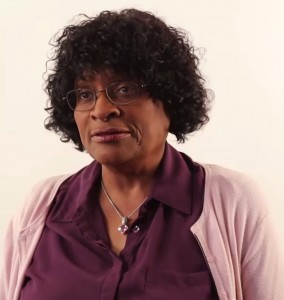 Gwen Hines, RN, Practice Administrator, Atlantic Adult & Pediatric Medicine, an Aledade partner
Gwen Hines, RN, Practice Administrator, Atlantic Adult & Pediatric Medicine, an Aledade partner
Bethesda, Maryland-based, tech-enabled accountable care company, Aledade, has raised $30 million in venture funding led by return backer ARCH Venture Partners with participation from its other existing investor Venrock. The company raised $4.5 million in its first round last summer, which is when Aledade's CEO -- former ONC head Dr. Farzad Mostashari -- founded it. Aledade helps small, independent practices create and manage ACOs for their Medicare populations, and it makes money by taking a percentage of the costs savings generated by the ACO.
"ARCH was a small investor in our first round and they had been keeping track of our progress," Mostashari told MobiHealthNews in an interview last week. "When it came time to seek additional funding we actually never even tested the waters. It was all done based on our inside investors... We were really honored that they stepped up and took care of the second round of funding for us so that we could focus on operating the business instead of fundraising."
Aledade's first year has seen it expand beyond its initial ACO rollouts in New York, Delaware, Arkansas, and Maryland to additional ones in West Virginia, Louisiana, Kansas, Mississippi, and Florida. It managed about 25,000 beneficiaries last year and it says its on track to manage more than 75,000 lives across more than 100 physician practices by year-end.
Mostashari says his company's efforts have also been buoyed by a few recent policy announcements. Earlier this year HHS announced that half of all Medicare payments would be shifted away from fee-for-service and to accountable care models by 2018. Another "ace" dealt to Aledade, Mostashari said, was a bipartisan move by Congress -- passing the SGR repeal legislation -- that rewards physicians participating in accountable care models with a 5 percent bonus, while promising little growth in payments for those that stay in fee-for-service models. The government also recently clarified what future, "next generation ACO" models will look like, which helped clarified the road ahead. Together, those three recent moves in Washington are producing "huge tailwinds" for companies focused on accountable care models for Medicare patients, Mostashari said.
With the new $30 million in funding, Aledade will look to expand the number of its ACOs, but will also take what they've learned working with that patient population and help physicians manage patients on private health plans.
"The experience we are striving for is for patients to feel like their primary care practice is more accessible to them and that they are more informed about their care," Mostashari said. "If they go to the emergency room, we want them to get a call from their primary care doc, possibly even when they are still in the ER. If they are not feeling well, to be able to call the primary care practice and get a walk-in, same-day visit instead of getting the runaround and being told to go to the emergency room because they're too booked and can't see them now. We also want them to have a 'wow' experience about how informed their primary care docs are about their whole care, not just what the primary care doc is doing in their office, but also what's happening with the specialist, at the hospital, and what happened with the tests that they had done... and this is possibly the most important aspect of population health, that if you don't call your doctor, they might call you."
While most of the care coordination technology that helps enable the patient experience Aledade delivers today is provider-facing, Mostashari says the recent funding will help it develop patient-facing engagement offerings soon too.
"These [technology] tools are not just important, they are critical," Mostashari says. "What makes this time different from previous attempts at [accountable care] is the data, analytics, and cloud-based tools that we have available to help this be effective at reducing costs and improving quality. Seeing the future with predictive analytics and understanding referral networks and getting real-time event notifications, the technology isn't just important, it's critical. One thing that distinguishes us maybe from others, we're not trying to sell technology, not trying to sell licenses, we're trying to get outcomes."
Aledade doesn't consider itself a technology company, Mostashari says, and that's an advantage his team has over the competition.
"Absent this sort of approach, this sort of prioritization, what I am seeing from a lot of pure technology software vendors in this space are things that don't really work in meeting the needs of the practices," he said. "They are created in a vacuum or rejiggered from something a health plan needs, or something someone else had laying around. They don't really understand the needs of practices the way we do."












